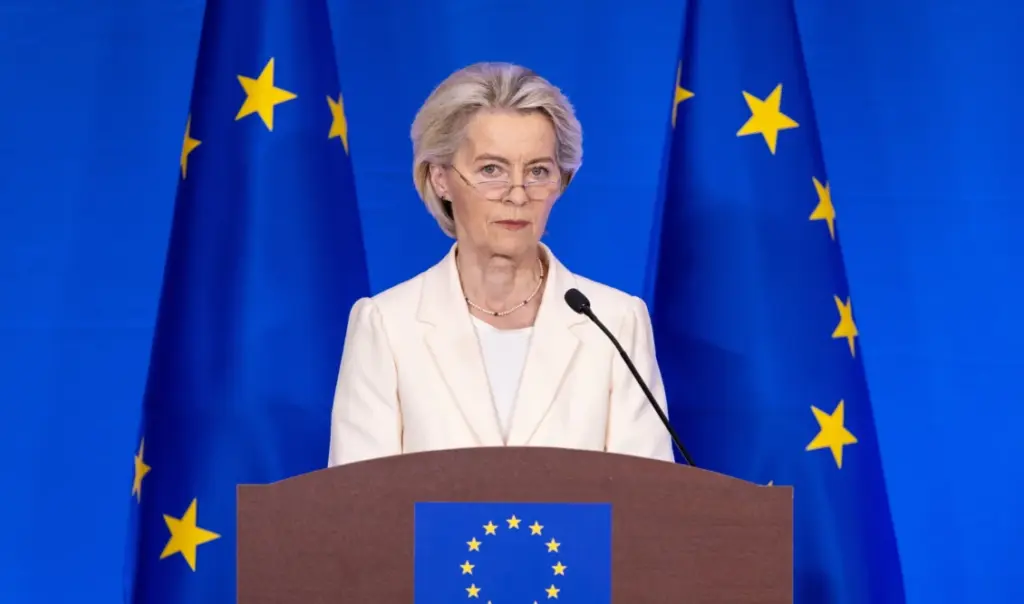The European Commission recommended today the partial suspension of the EU-Israel Association Agreement in the trade sector, as well as the imposition of sanctions on two far-right ministers of Benjamin Netanyahu’s government, as announced by EU High Representative Kaja Kallas. “I want to emphasize that the goal is not to punish Israel, but to improve the humanitarian situation in Gaza,” Kallas stated at a press conference in Brussels.
Read: Politico: Division in the EU over sanctions on Israel
The proposal includes suspension of key trade provisions of the Agreement, which means that imports from Israel will be subject to tariffs as applies to countries outside free trade agreements with the EU. Additionally, bilateral financial support to Israel is suspended, with the exception of civil society support and Yad Vashem, affecting funding for the 2025-2027 period and institutional cooperation or regional funding projects. To take effect, the decision must be approved by the EU Council with a qualified majority.
The Commission’s proposals follow a review of Israel’s compliance with Article 2 of the Association Agreement, which found that “actions taken by the Israeli government constitute a violation of essential elements related to respect for human rights and democratic principles.” This gives the EU the right to unilaterally suspend the Agreement.
Specifically, the violation concerns the “rapidly deteriorating humanitarian situation in Gaza following Israel’s military intervention, the blocking of humanitarian aid, the intensification of military operations and the decision by Israeli authorities to advance the settlement plan in the so-called E1 area of the West Bank, which further undermines the two-state solution.”
Additionally, the European Commission proposed today the imposition of sanctions against “extremist ministers of the Israeli government,” within the framework of the EU Global Human Rights Sanctions Regime. These are National Security Minister Itamar Ben-Gvir (former defense minister) and Finance Minister Bezalel Smotrich. New sanctions are also proposed against “violent settlers,” specifically against three individuals and six entities.
At the same time, the Commission proposes sanctions against ten members of Hamas’s political bureau.
The EU Council must approve the decision on sanctions unanimously. The Council has so far registered on the sanctions list nine individuals and five entities connected to violent extremism in the West Bank and East Jerusalem, as well as the obstruction of humanitarian aid in Gaza.
What applies to EU-Israel trade relations
Regarding EU-Israel trade relations, it’s worth noting that the EU is Israel’s largest trading partner, representing 32% of Israel’s total goods trade with the world in 2024. Israel is the EU’s 31st largest trading partner. Total goods trade between the EU and Israel in 2024 amounted to approximately €42.6 billion.
EU imports from Israel amounted to €15.9 billion, mainly machinery and transport equipment (€7 billion, 43.9%), chemicals (€2.9 billion, 18%) and other manufactured products (€1.9 billion, 12.1%).
EU exports to Israel amounted to €26.7 billion and mainly concerned machinery and transport equipment (€11.5 billion, 43%), chemicals (€4.8 billion, 18%) and other manufactured products (€3.1 billion, 11.7%).
Trade in services between the EU and Israel amounted to €25.6 billion in 2023 (the EU imports €10.5 billion and exports €15.1 billion). However, trade in services is not affected at all by today’s Commission proposal.
It should be recalled that in her State of the Union speech for 2025, on September 10, 2025, European Commission President Ursula von der Leyen announced that the Commission would propose partial suspension of the association agreement with Israel on trade matters.
Today, European Commission President Ursula von der Leyen stated: “The horrific events taking place in Gaza on a daily basis must stop. There must be an immediate ceasefire, unrestricted access for all humanitarian aid and the release of all hostages held by Hamas. The EU remains the largest donor of humanitarian aid and an unwavering advocate of the two-state solution. Reflecting these principled commitments and taking into account serious recent developments in the West Bank, we propose to suspend trade concessions with Israel, impose sanctions on extremist ministers and violent settlers and suspend bilateral support to Israel, without affecting our work with Israeli civil society or Yad Vashem.”




